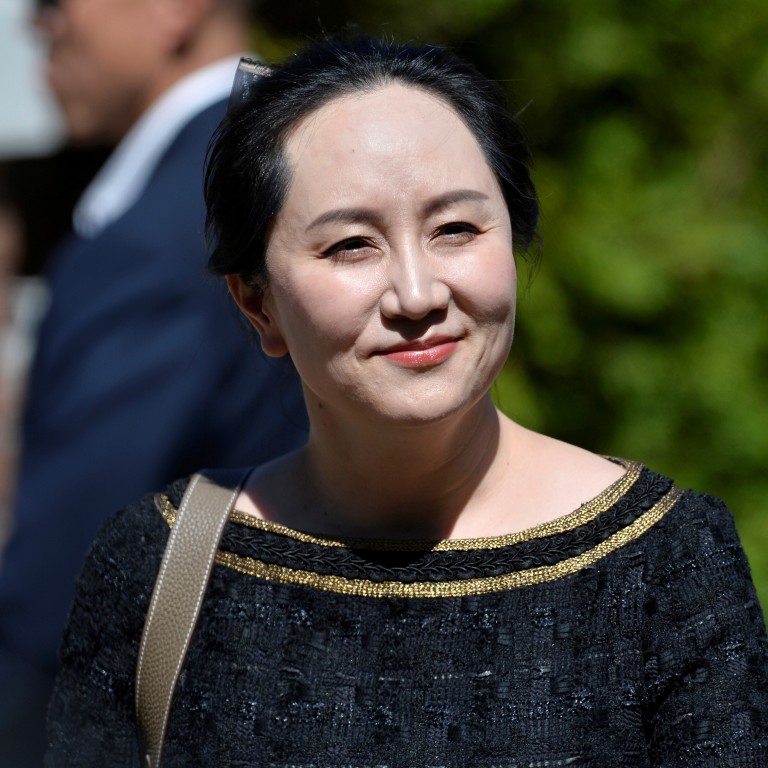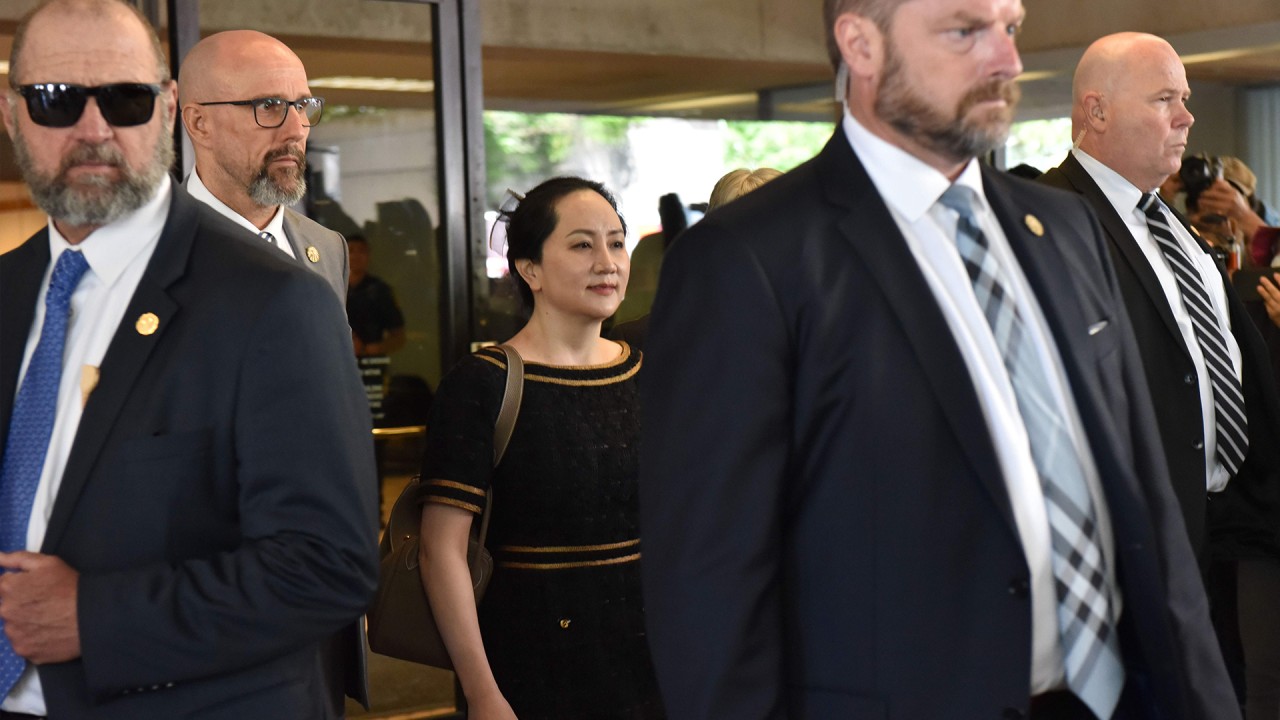
Huawei’s Meng Wanzhou seeks Canadian spy-service documents, claiming national security ‘cover-up’ about her arrest
- Canada’s intelligence service says the material could identify secret ‘human sources’ involved in the case
- Meng wants fuller access to the redacted documents about her arrest, as she seeks to have her extradition case thrown out as an abuse of process
In a federal court application being heard in Ottawa on Monday, Meng’s lawyers claimed that the documents have likely been the subject of “excessive redactions [and] overly broad claims of privilege”, and are likely relevant to Meng’s claims that she was the victim of an abuse of process in her arrest. They say her ongoing extradition hearing in the British Columbia Supreme Court should be thrown out because of this.
The lawyers want access to material provided on Meng’s case to the Canadian Security Intelligence Service (CSIS) by “human sources”, as well as the role of the CSIS officers in Meng’s December 1, 2018 arrest at Vancouver’s airport.
But CSIS says the material could identify its secret sources and cannot be revealed as a matter of national security.

00:54
Trudeau rejects releasing Meng Wanzhou to free detained Canadians in China
“What happened, who was involved, the communications between the parties … these are highly relevant facts,” to the abuse claims, Meng’s lawyer Scott Fenton told Justice Catherine Kane in the federal court.
The case has upended China’s relations with Canada and the United States. US authorities, who want Meng to face trial in New York, accuse her of bank fraud in relation to Huawei’s business dealings in Iran, while her lawyers and Beijing say she was arrested as a bargaining chip in US trade negotiations with China.
“National security privilege should not be used to cover up the abuse,” Meng’s lawyers said in a memo supporting their case. “Additionally, national security privilege should not be used to protect government enforcement officials from being embarrassed.”
Meng lawyers seek halt to case, accusing Trump and Trudeau of meddling
Fenton said Meng was subjected to a “shocking disregard” of the terms of her arrest warrant, issued by a Canadian judge after a request from US prosecutors, which said she should be arrested “immediately”.
Fenton said Canadian federal police delayed the arrest for three hours after Meng got off her flight, while Canada Border Services Agency (CBSA) officers conducted a “covert” investigation of her on behalf of US authorities, seizing her electronic devices and their passwords and interrogating her.
“The CBSA used its extraordinary powers … to gather evidence for the FBI on Ms Meng” that was unrelated to their mandate as border officers, Fenton said.
He said that instead of being a routine border inspection, as lawyers for Canada’s attorney general had claimed, “it was improper and an abuse to use CBSA powers to advance a foreign criminal investigation”.

00:38
Huawei executive Meng Wanzhou leaves Canadian court after legal setback
By failing to inform Meng of the true reasons for her three-hour detention, and that her arrest was impending, the CBSA officers and the Royal Canadian Mounted Police (RCMP) had “tricked” her.
Fenton said Meng’s legal team wanted the identities of RCMP officers who were apparently liaising with CSIS and seemed to know “what was about to go down” ahead of the arrest.
He said Meng’s lawyers did not necessarily need to know the names of CSIS officers. But the legal memo said that “if, however, the role of a particular CSIS employee emerges … such information should be disclosed.”
Canadian government lawyer Robert Frater, representing US interests in the case, said his team did not accept that there had been a “conspiracy”, nor that there had been a violation of Meng’s rights or the terms of the arrest warrant.
Canada spy report on Meng Wanzhou’s arrest is revealed
He said his team had not conceded the relevance of the material being sought, and that Kane was being asked by Meng’s lawyers “to draw fanciful inferences from anodyne statements and documents”.
The public portion of the federal court hearing on Monday was adjourned. However it will continue in the form of a special closed hearing on Thursday, when Frater’s team will make their submissions as the material sought by Meng is regarded by the government as secret.
Not even she or her lawyers will be allowed to attend discussions that reveal it. Instead, a lawyer with national security clearance, known as an amicus curiae, has been appointed to advise the court in addition to the government’s lawyers.
The amicus, Anil Kapoor, is paid by Meng, but does not technically represent her, acting instead as an adviser to the court.

